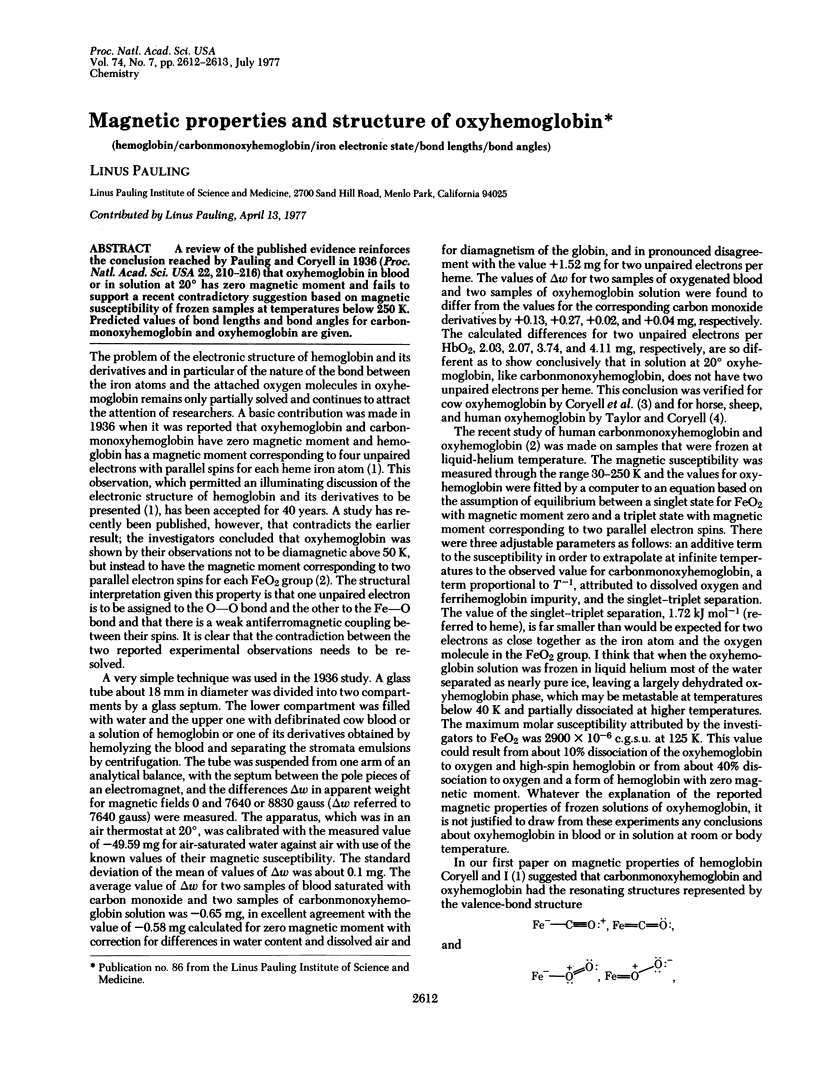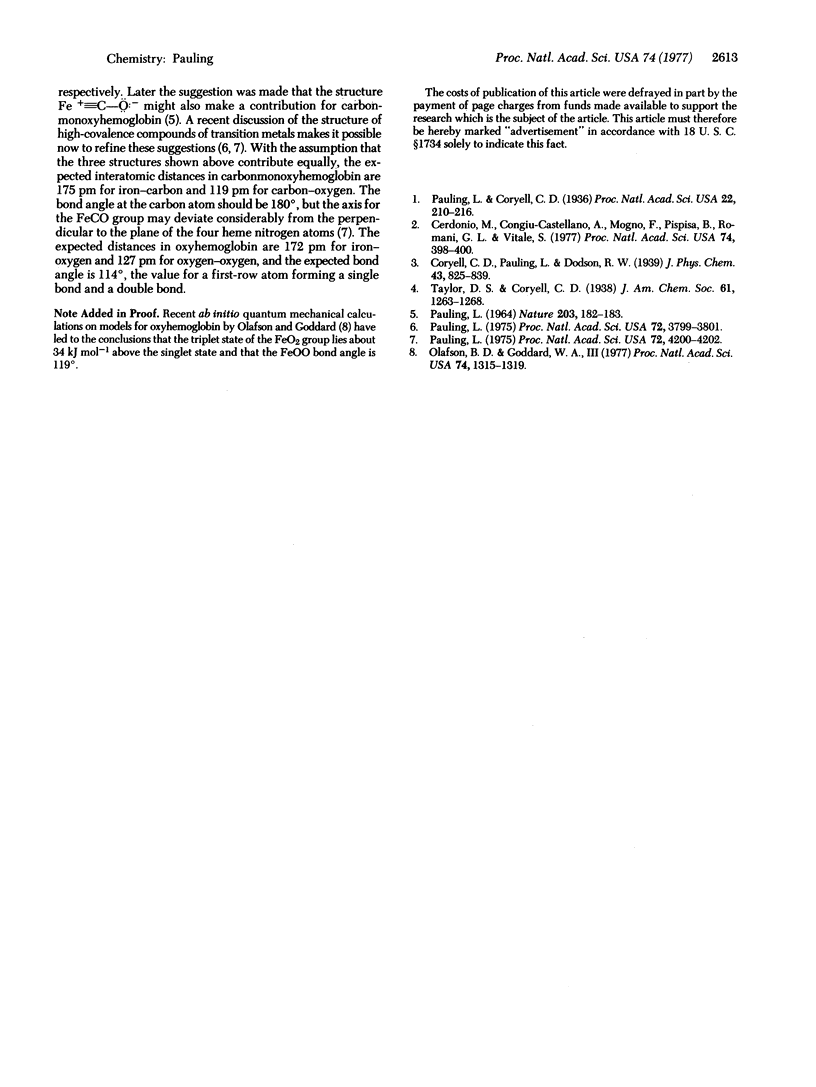Abstract
A review of the published evidence reinforces the conclusion reached by Pauling and Coryell in 1936 (Proc. Natl. Acad. Sci. USA 22, 210-216) that oxyhemoglobin in blood or in solution at 20 degrees has zero magnetic moment and fails to support a recent contradictory suggestion based on magnetic susceptibility of frozen samples at temperatures below 250 K. Predicted values of bond lengths and bound angles for carbonmonoxyhemoglobin and oxyhemoglobin are given.
Full text
PDF

Selected References
These references are in PubMed. This may not be the complete list of references from this article.
- Cerdonio M., Congiu-Castellano A., Mogno F., Pispisa B., Romani G. L., Vitale S. Magnetic properties of oxyhemoglobin. Proc Natl Acad Sci U S A. 1977 Feb;74(2):398–400. doi: 10.1073/pnas.74.2.398. [DOI] [PMC free article] [PubMed] [Google Scholar]
- Olafson B. D., Goddard W. A., 3rd Molecular description of dioxygen bonding in hemoglobin. Proc Natl Acad Sci U S A. 1977 Apr;74(4):1315–1319. doi: 10.1073/pnas.74.4.1315. [DOI] [PMC free article] [PubMed] [Google Scholar]
- Pauling L., Coryell C. D. The Magnetic Properties and Structure of Hemoglobin, Oxyhemoglobin and Carbonmonoxyhemoglobin. Proc Natl Acad Sci U S A. 1936 Apr;22(4):210–216. doi: 10.1073/pnas.22.4.210. [DOI] [PMC free article] [PubMed] [Google Scholar]
- Pauling L. Maximum-valence radii of transition metals. Proc Natl Acad Sci U S A. 1975 Oct;72(10):3799–3801. doi: 10.1073/pnas.72.10.3799. [DOI] [PMC free article] [PubMed] [Google Scholar]
- Pauling L. Valence-bond theory of compounds of transition metals. Proc Natl Acad Sci U S A. 1975 Nov;72(11):4200–4202. doi: 10.1073/pnas.72.11.4200. [DOI] [PMC free article] [PubMed] [Google Scholar]
- WEISS J. J. NATURE OF THE IRON-OXYGEN BOND IN OXYHAEMOGLOBIN. Nature. 1964 Jul 11;203:182–183. [PubMed] [Google Scholar]



